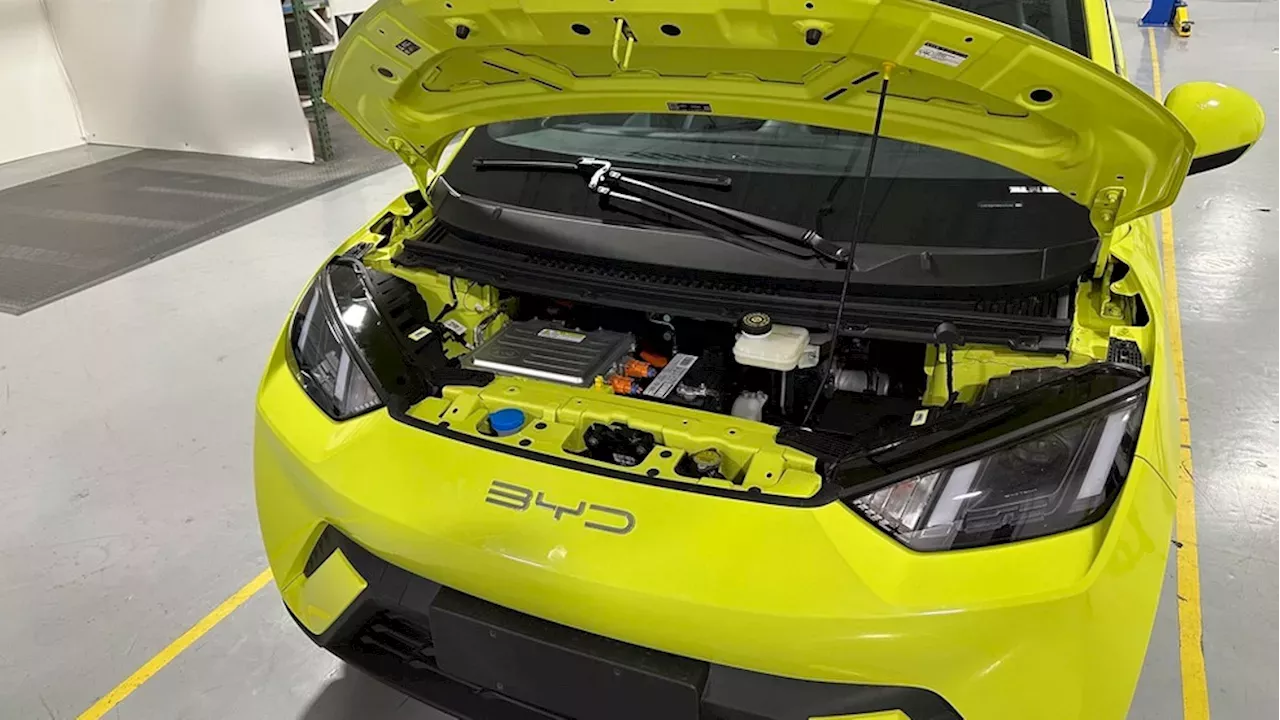FILE - A BYD Seagull electric vehicle, with its hood open, is shown at the Caresoft Global facility April 3, 2024, in Livonia, Mich. China's BYD last year introduced the Seagull, a small EV that sells for just $12,000 in China. Chinese carmakers set up shop in Mexico to exploit North American trade rules. Once in place, they send ultra-low-priced electric vehicles streaming into the United States.
The trade deal that Beijing could potentially exploit — the U.S.-Mexico-Canada Agreement — was negotiated by the Trump administration and enacted in 2020. Its rules could let Chinese autos assembled in Mexico enter the United States, either duty-free or at a nominal 2.5% tariff rate. Either way, China could sell its EVs well below typical U.S. prices.
The threat from Beijing is emerging just as U.S. automakers face slowing EV sales even while investing billions to produce them in a high-priced bet that Americans will embrace battery-powered autos in the coming decades. Comparatively high prices, despite federal tax incentives for buyers, have weakened EV sales in the United States.
Critics note that BYD and other Chinese EV makers have achieved their cost efficiencies thanks to heavy government subsidies. Beijing spent 953 billion Chinese renminbi on EVs and other green vehicles from 2009 through 2021, according to researchers at the Center for Strategic and International Studies.Last month, Biden drastically raised the tariff on Chinese EVs, from the 27.5% established under Trump to 102.5%. It's meant to price even the bargain-priced BYD Seagull out of the U.S.
But there's an easier way that Chinese EV makers could use Mexico to try to dodge Biden's killer 102.5% import tax: They would have to pay only 2.5% — the tax imposed on most cars imported to the United States — if they could show that assembling their EVs in Mexico involved a "substantial transformation'' that essentially turned them from Chinese into Mexican cars.
"U.S. fears regarding possible use of connected vehicles to spy on military installations or powerplants are not irrational,'' Gantz wrote.
